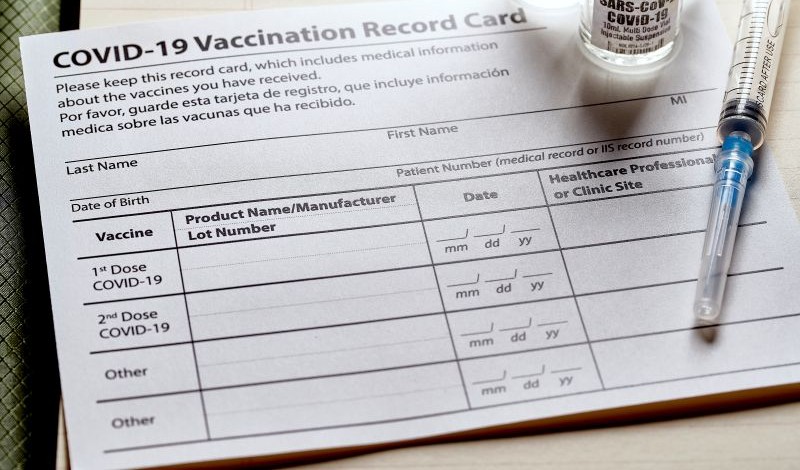
Recent actions by HHS focus on vaccine attitudes, use, and development.
At a recent U.S. Senate committee hearing, Senator John Barasso (R-Wyo.) expressed concerns that the current Administration’s efforts will limit vaccine access. Senator Barasso told Robert F. Kennedy, Jr., Secretary of the U.S. Department of Health and Human Services (HHS), that his leadership has generated “real concerns that safe, proven vaccines like measles, like hepatitis B and others, could be in jeopardy,” which “would put Americans at risk and reverse decades of progress.”
In response, Kennedy defended new restrictions that will limit the group of people who can receive COVID-19 vaccines, stating that he was “not taking vaccines away from anybody.”
The U.S. Food and Drug Administration (FDA) issued these guidelines in September as a part of updated approvals for COVID-19 vaccines that the agency is rolling out this fall. In the new approvals, FDA limited the use of COVID-19 vaccines to people 65 and older or those with “at least one underlying condition that puts them at high risk for severe outcomes from COVID-19.”
Kennedy announced FDA’s new standards on social media, emphasizing that the updated framework was a response to the public’s demand for “science, safety, and common sense.” He argued that the limitation furthered his goal of ending vaccine mandates while keeping them available to “people who want them.”
Experts speculate that FDA’s limits may cause insurance companies to deny coverage for COVID-19 vaccines or dissuade doctors and pharmacists from prescribing or administering them.
Before announcing the new limitations, Kennedy initiated sweeping changes that have also affected vaccine recommendations, vaccine research and development, and federal agency leadership.
In June, Kennedy removed and replaced all 17 members of the Advisory Committee on Immunization Practices (ACIP), claiming that their removal was necessary to “reestablish public confidence in vaccine science.” The committee is responsible for developing recommendations on the appropriate use of vaccines to control the spread of disease.
Among other decisions, the committee recently recommended that individuals 6 months and older consult a health care provider before receiving the COVID-19 vaccine and that providers limit the use of a combined measles, mumps, rubella, and varicella vaccine for children under the age of 4.
Justifying these replacements, Kennedy argued that the previous ACIP members “plagued” the committee with “persistent conflicts of interest” due to their connections to industry, but research shows that conflicts of interest among ACIP members were at an all-time low prior to their removal.
To resolve perceived conflicts of interest, Kennedy replaced the previous committee members with known critics of vaccines. New members included Vicky Pebsworth, a board member of the National Vaccine Information Center, an organization that has reportedly perpetuated vaccine misinformation in the past.
Kennedy is reportedly considering appointing Joseph Fraiman, a doctor who published a study associating mRNA vaccines with an “excess risk of serious adverse events.” The study was later debunked by fact-checkers who found that the study made an “unsubstantiated claim” based on a “flawed reanalysis” of clinical trial data from COVID-19 vaccine manufacturers Pfizer and Moderna.
Kennedy has also influenced vaccine research by reducing federal funding for and casting doubt on vaccine development efforts.
On August 5, HHS issued a press release announcing “a coordinated wind-down” of mRNA vaccine-related development activities. The agency’s shift, Kennedy explained, followed its review of “the science” and expert perspectives.
As a result, HHS’s Center for Biomedical Advanced Research and Development Authority will terminate federal contracts for 22 mRNA vaccines, “projects worth nearly $500 million.” HHS noted that its decision reflects changing federal priorities for vaccine development, stating that future efforts will focus on “platforms with stronger safety records and transparent clinical and manufacturing data practices.”
In what has been described as “a rare move for a U.S. public official” to influence vaccine research, Kennedy has called for the retraction of a scientific study showing that there is no connection between the presence of aluminum in vaccines and the development of chronic diseases in children.
Anti-vaccine groups argue regularly that the aluminum in vaccines, which is used as an adjuvant to make vaccines more effective, is harmful. Kennedy himself has argued that aluminum’s presence in vaccines is “extremely neurotoxic.” Kennedy has made sweeping cuts to HHS leadership after facing resistance to his public health agenda. In late August, HHS announced the removal of the director of the Centers for Disease Control and Prevention (CDC), Susan Monarez, just weeks after she began her tenure.
Monarez reportedly disagreed with Kennedy’s vaccine policies and pushed back on his efforts to legitimize the association between vaccines and autism, a claim that has been debunked repeatedly, including by the CDC itself.
Monarez’s lawyers reportedly stated that she “refused to rubber-stamp unscientific, reckless directives” and would not continue Kennedy’s mission of “weaponizing public health for political gain and putting millions of American lives at risk.”
Following Monarez’s resignation, other top CDC officials, including the CDC’s chief medical officer and the directors of two of its centers dedicated to specific diseases.
In a recent op-ed published in The Wall Street Journal, Kennedy argued that by removing these “entrenched bureaucrats” who “resisted” his reform initiatives, he is “restoring public trust” in the CDC. He explained how, following recent measles outbreaks in Texas, the CDC acted “swiftly” to end the outbreak using science ”free from ideology.”
Meanwhile, the CDC has reported over 1,400 confirmed measles cases across 42 jurisdictions in the United States and 35 outbreaks just this year. Of those confirmed cases, 92 percent involved unvaccinated individuals or individuals with unknown vaccination status.
Just seven months into Kennedy’s tenure, experts have described Kennedy’s leadership as “tumultuous” and “chaotic.” One scientist working within HHS’s National Institutes of Health concluded that the chaos “in itself is harming the American people.”
This scientist, along with over 1,000 former HHS employees, signed a letter calling for Kennedy’s resignation in which they charged that his actions have placed “the health of all Americans at risk, regardless of their politics.”



